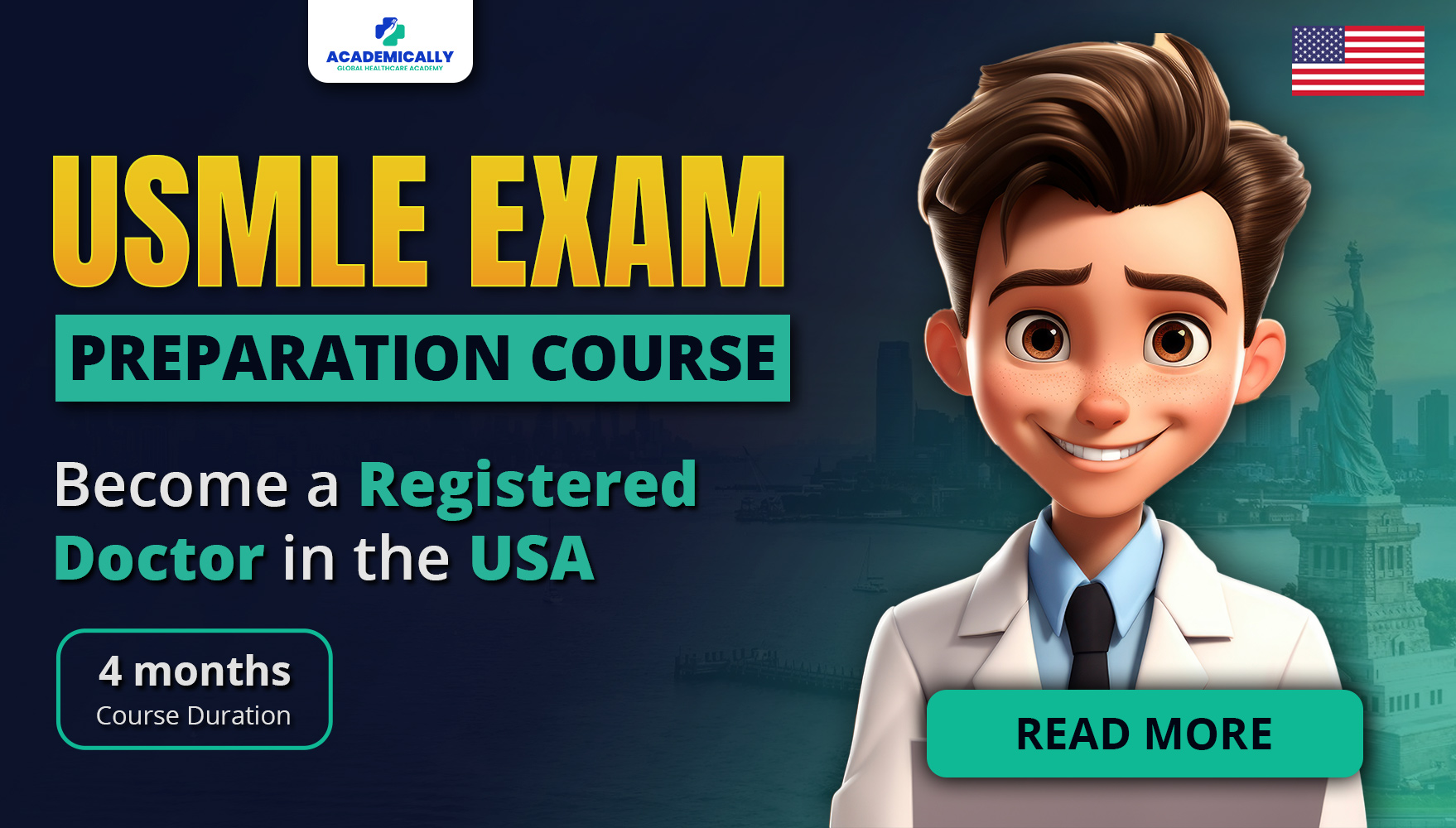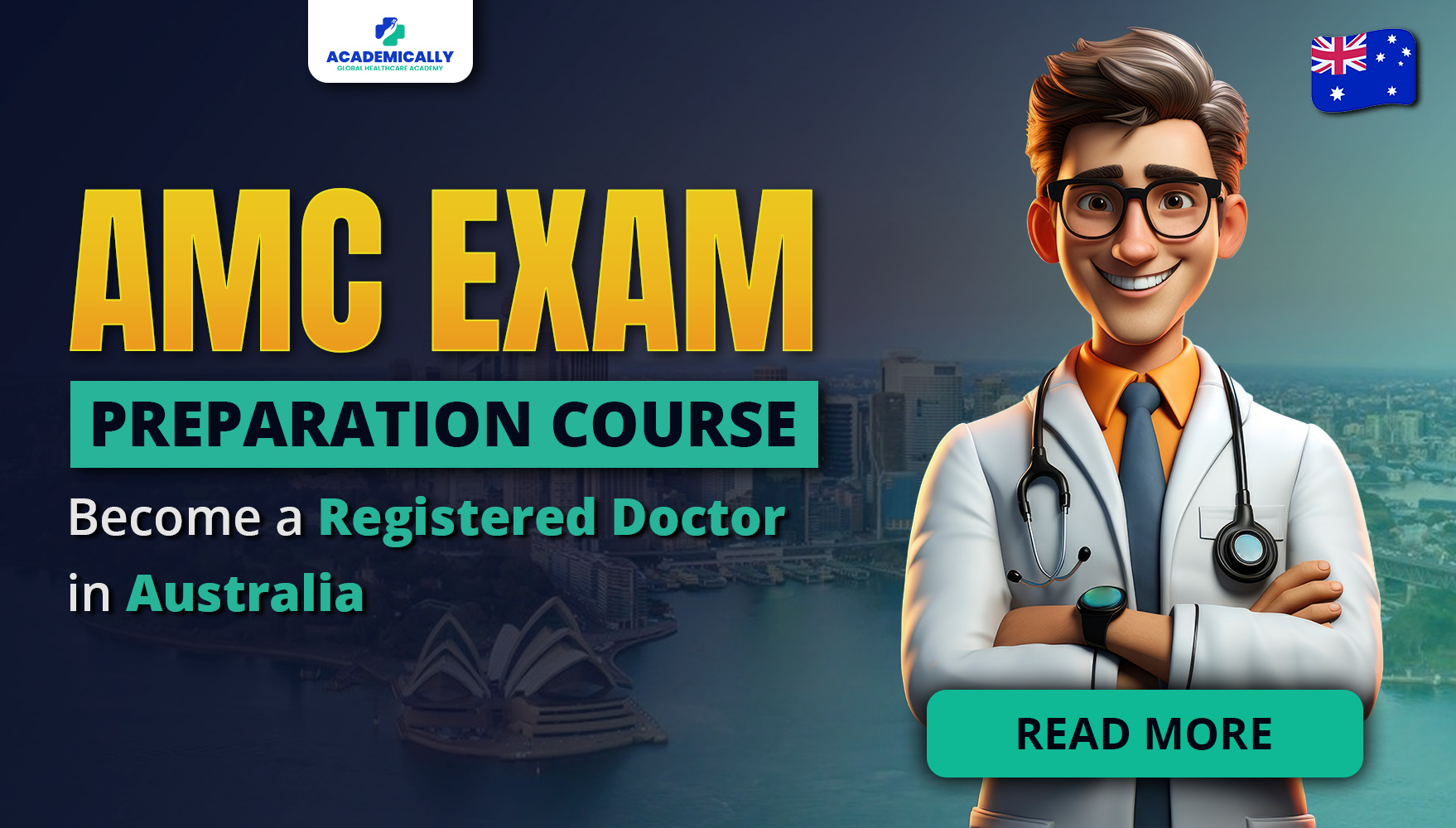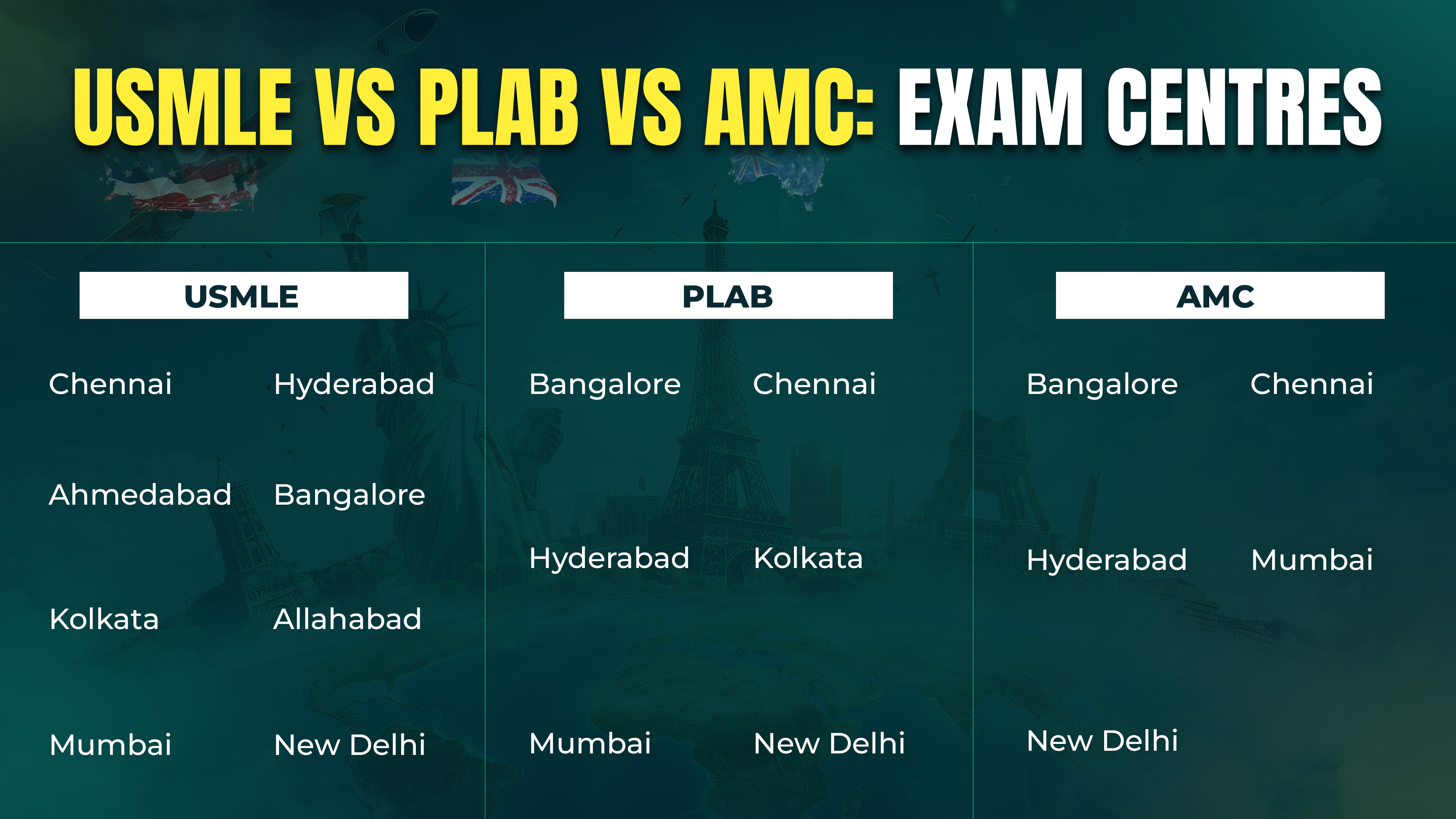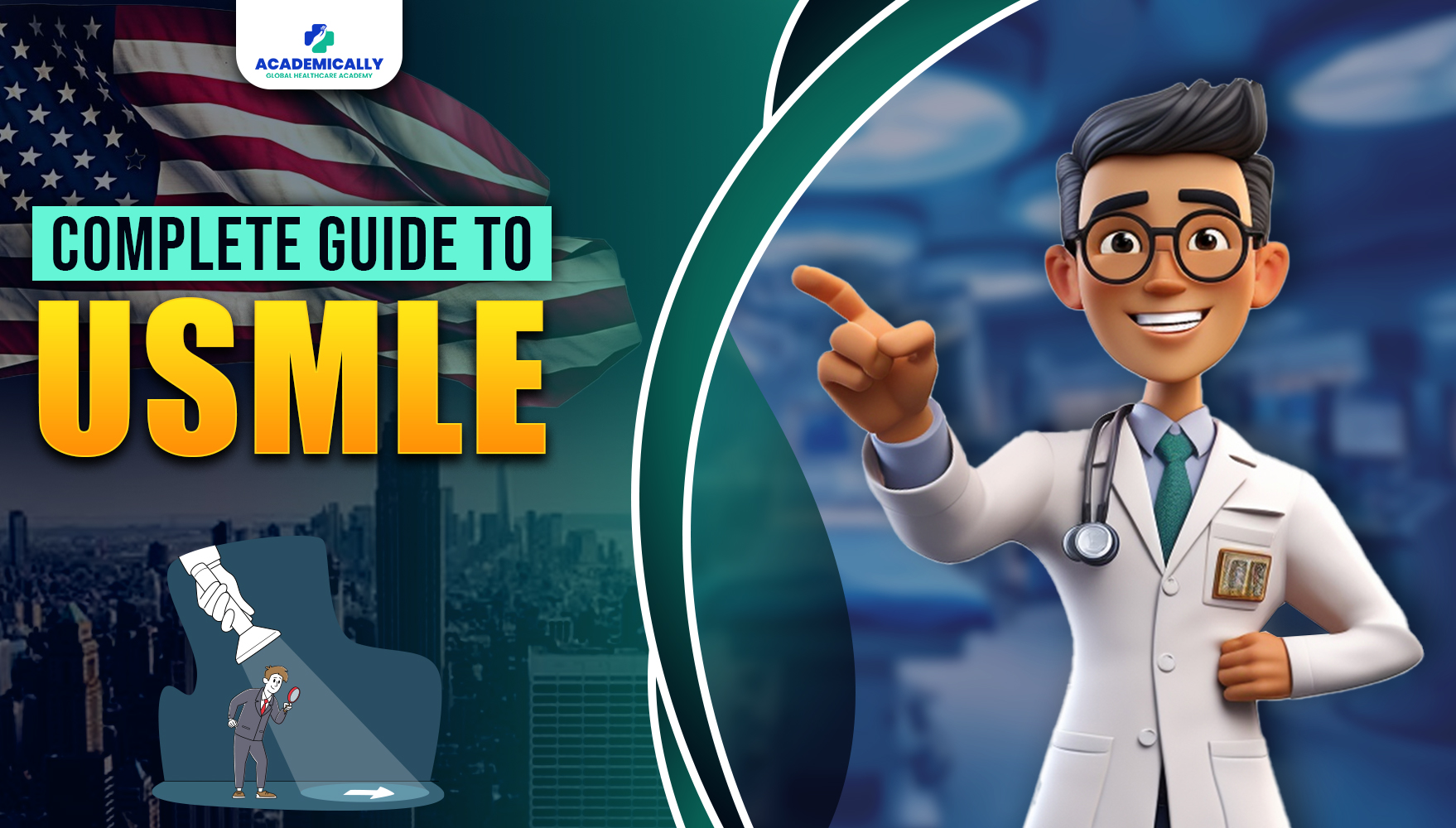USMLE vs PLAB vs AMC: Country
USMLE: The USMLE exam is mandatory for those medical doctors aiming to practise in the United States.
PLAB: The PLAB exam is the gateway to becoming a registered doctor in the United Kingdom.
AMC: The AMC exam is an essential part of getting registration to practise in Australia.
USMLE vs PLAB vs AMC: Who Conducts the Exam?
USMLE: The USMLE exam is conducted by two bodies: the Federation of State Medical Boards (FSMB) and the National Board of Medical Examiners (NBME).
PLAB: The PLAB exam is conducted by the General Medical Council (GMC).
AMC: The AMC exam is conducted by the Australian Medical Council (AMC).
USMLE vs PLAB vs AMC: Eligibility Requirements
USMLE: The eligibility criteria are as follows.
- Candidates must be enrolled in or a graduate of a non-U.S. and non-Canadian medical school listed in the World Directory of Medical Schools, meeting ECFMG criteria.
- Candidates must meet any other criteria set by the ECFMG as mandated.
PLAB: The international medical graduates applying must hold a primary medical qualification recognised by an institution listed in the World Directory of Medical Schools.
- The applicant must have undertaken clinical rotations as part of their primary medical qualification (12 months).
- The English language proficiency should be proven by achieving a minimum overall score of 7.5 in the IELTS academic modules, with a minimum score of 7.0 in each
AMC: The candidate must hold a primary medical qualification obtained from a medical school listed and recognised by the Australian Medical Council. All you need to be eligible to take this exam is-
- An MBBS or relevant medical graduation degree obtained from a university/institute listed in the World Directory of Medical Schools (WDoMS).
USMLE vs PLAB vs AMC: Examination Structure
USMLE: The United States Medical Licensing Examination (USMLE) is split into three parts: Step 1, Step 2, and Step 3. Step 1 checks your understanding of basic science and how it applies to real medical situations. Step 2 looks at how well you know clinical science and how you use it in practice. Step 3 is about testing your knowledge of both basic and clinical science, plus how you manage patients, handle emergencies, and more. These steps make sure doctors have the right knowledge and skills to take care of patients in different situations.

PLAB: The Professional and Linguistic Assessments Board (PLAB) exam also has two parts. PLAB 1 is a written test that lasts 3 hours. It has 180 multiple-choice questions about various medical subjects. PLAB 2 is a hands-on exam called an OSCE. You'll go through 16 different patient scenarios, and each one lasts 8 minutes. This part of the exam checks how well you can use your medical knowledge in practical situations, like diagnosing patients and communicating with them.

AMC: The Australian Medical Council (AMC) exam has two parts. The first part, called the AMC MCQ exam, is done on a computer and has 150 multiple-choice questions. You'll have 3.5 hours to answer them. This part tests how well you know different medical topics. The second part, the AMC clinical exam, is like a real-world test. It checks how good you are at taking care of patients. You'll go through 20 different tasks, including talking to patients, reviewing information, and making diagnoses. This part usually takes around 3 hours and 20 minutes.

USMLE vs PLAB vs AMC: English Language Proficiency
USMLE: To meet the English language proficiency requirement for USMLE, candidates need to achieve a score of 350 in each section of Listening, Reading, and Speaking and 300 in Writing in the OET exam.
PLAB: For PLAB, candidates must attain a score of 7 in each module and an overall score of 7.5 in the IELTS Academic version or achieve a grade of B in each module of the OET exam.
AMC: Candidates aiming for the AMC exam must obtain a score of 7 in each module and an overall score of 7 in the IELTS Academic version or achieve a grade of B in each module of the OET exam. Alternatively, candidates can fulfil the English language proficiency requirement by scoring 65 in each module and an overall score of 65 in the PTE Academic exam.

Choosing the Right Exam
The best licensing exam for you will depend on several factors, including:
Desired country of practice: Where do you want to practise medicine? The USMLE is required for practising medicine in the United States, the PLAB is required for practising medicine in the United Kingdom, and the AMC is required for practising medicine in Australia.
Career goals: What are your career goals? If you want to specialise in a particular field of medicine, you may need to take an additional exam in addition to the licensing exam.
Financial resources: The cost of taking a licensing exam can vary depending on the exam and the number of times you need to take it.
Conclusion
Choosing between USMLE, PLAB, and AMC is a significant decision for international medical graduates seeking licensure in the US, UK, or Australia. Understanding the nuances of each exam, including content, eligibility, and pathway to licensure, is crucial for making an informed decision. By considering career goals, eligibility criteria, preparation, timeline, and cost, aspiring medical professionals can navigate the process effectively and take the first step toward practising medicine internationally.
If you wish to start your journey to medical licensure in any of these countries, Academically offers comprehensive preparation courses that will help you crack the exams on your first attempt.
Fill up this form for a free one on one counselling session.






